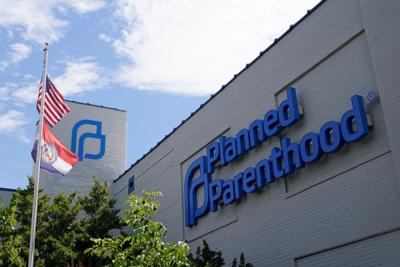WASHINGTON — A divided Supreme Court ruled on Thursday that states can block the country’s biggest abortion provider, Planned Parenthood, from receiving Medicaid money for health services such as contraception and cancer screenings.
The 6-3 opinion authored by Justice Neil Gorsuch and joined by the rest of the court’s conservatives was not directly about abortion, but it comes as Republicans back a wider push across the country to defund the organization. It closes off Planned Parenthood’s primary court path to keeping Medicaid funding in place: lawsuits from patients.
A similar legal fight over funding Planned Parenthood has been waged for years in Missouri.
In 2024, Missouri Republicans, who control all levers of state government, muscled legislation through the House and Senate banning Medicaid funding for the abortion provider.
People are also reading…
The measure cleared the Missouri Senate on a party-line vote after Democrats staged a 12-hour filibuster.
“It shall be unlawful for any public funds to be expended to any abortion facility, or to any affiliate or associate of such abortion facility,” the Missouri legislation says.
Former Gov. Mike Parson signed the measure in May 2024 despite Planned Parenthood warning that the legislation violates federal law allowing patients the freedom to choose any willing and qualified provider.
Planned Parenthood is challenging the Missouri law in a case that is pending before an administrative hearing commission.
State payroll records show no state funding has gone to Planned Parenthood affiliates since 2019.
The high court ruling could have broader implications for Medicaid patients because it blocks them from suing to make sure they can visit the provider they choose.
Public health care money generally can’t be used to pay for abortions. Medicaid patients go to Planned Parenthood for other needs in part because it can be tough to find a doctor who takes the publicly funded insurance, the organization has said.
South Carolina’s Republican governor says no taxpayer money should go the organization. The budget bill backed by President Donald Trump in Congress would also cut Medicaid funding to Planned Parenthood. That could force the closure of about 200 centers, most of them in states where abortion is legal, the organization has said.
Destiny Lopez, CEO of the Guttmacher Institute, which tracks abortion policy in the United States, called the decision in the South Carolina case a “grave injustice.”
“This is a systematic decimation of access to reproductive health care and a signifier of what else is likely to come. Everyone deserves choice in their health care provider and access to the family planning they need,” Lopez said.
South Carolina Gov. Henry McMaster first moved to cut off Medicaid funding to Planned Parenthood in 2018 but was blocked in court after a lawsuit from a patient named Julie Edwards. Edwards wanted to keep going there for birth control because her diabetes makes pregnancy potentially dangerous, so she sued over a provision in Medicaid law that allows patients to choose their own qualified provider.
South Carolina, though, argued that patients shouldn’t be able to file those lawsuits. The state pointed to lower courts that have been swayed by similar arguments and allowed states such as Texas to block Medicaid funding from Planned Parenthood.
The high court majority agreed. “Deciding whether to permit private enforcement poses delicate policy questions involving competing costs and benefits — decisions for elected representatives, not judges,” Gorsuch wrote.
In a dissent joined by her liberal colleagues, Justice Ketanji Brown Jackson said the ruling is “likely to result in tangible harm to real people.”
“It will strip those South Carolinians — and countless other Medicaid recipients around the country — of a deeply personal freedom: the ‘ability to decide who treats us at our most vulnerable,’” she wrote.
Public health groups like the American Cancer Society said in court papers that lawsuits are the only real way that Medicaid patients have been able to enforce their right to choose their own doctor. Losing that right would reduce access to health care for people on the program, which is estimated to include one-quarter of everyone in the country. Rural areas could be especially affected, advocates said in court papers.
In South Carolina, $90,000 in Medicaid funding goes to Planned Parenthood every year, a tiny fraction of the state’s total Medicaid spending. The state banned abortion at about six weeks’ gestation after the high court overturned it as a nationwide right in 2022. The state says other providers can fill a health care void left by Planned Parenthood’s removal from Medicaid.
Kurt Erickson of the Post-Dispatch contributed to this report.
The Missouri House of Representatives briefly debated a bill to cut funding to Planned Parenthood before sending the bill to the governor's desk on Wednesday, April 24, 2024. Video provided by the House communications office; edited by Beth O'Malley












